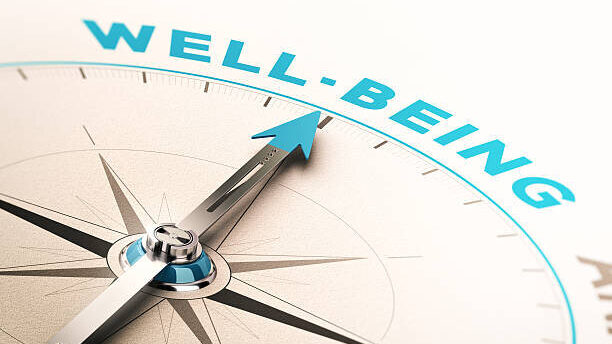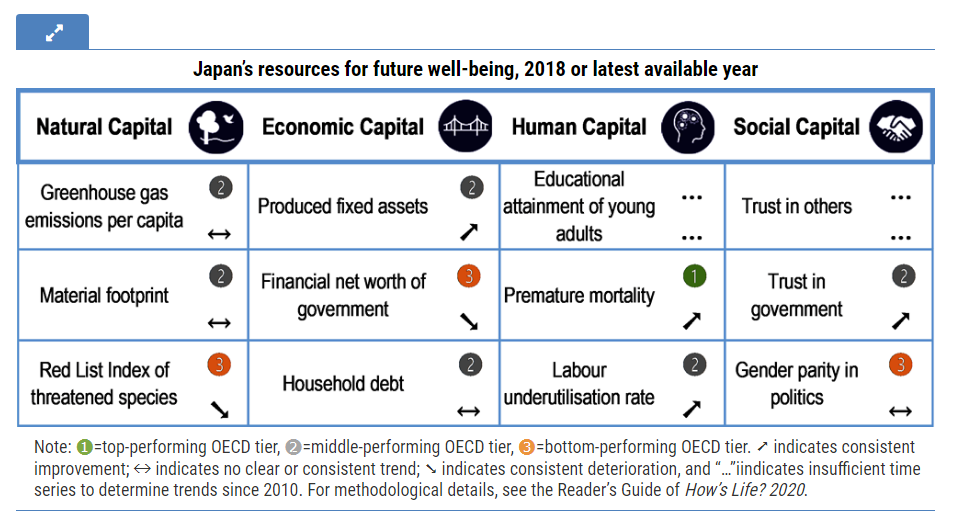Secret of happy life in Japan~Money equals Happiness?~

Photo from: OECD Libary
In Session 11 we talked about the education and innovation
in Japan. Perhaps more people are interested in another important issue: How is life in Japan?
Actually Japan performs well across a number of well-being dimensions relative to other developed countries in the better life Index. Japan outperforms the average in education, safety and environmental quality. At the same time, It underperforms average in income, social connections, civic engagement and life satisfaction.

Money, while it cannot buy happiness, is an important way to achieving higher living standards. In Japan, the average household net-adjusted disposable income per capita is USD 28 872 a year, less than the OECD average of USD 30490 a year.
In terms of employment, about 77% of people aged 15 to 64 in Japan have a paid job, above the OECD employment average of 66%. Some 84% of men are in paid work, compared with 71% of women. In Japan, more employees work very long hours in paid work than the OECD average of 10%.

Photo from: OECD Library
Good education and skills are important requisites for finding a job. In Japan, more adults aged 25-64 have completed upper secondary education than the OECD average of 79%. In terms of the quality of the education system, the average student scored 520 in reading literacy, maths and science. This score is higher than the OECD average of 488.
How about performances in other sections such as environment, gender, health and life satisfaction?
Is it true that Japanese tend to solve problems themselves rather than relay on others?
In the Session 11 of YOUTUBE program “How is life in Japan”, Miss.Nakano and I will do in-depth analysis and try to find answers for these problems. Don’t miss the program (broadcast from every Wednesday Japanese ) and share your opinions with us at any time!


